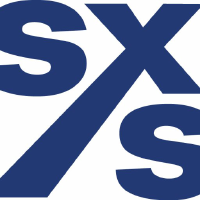London open: Stocks rise as US avoids govt shutdown; house price data in focus

London stocks edged higher in early trade on Monday after the US narrowly avoided a government shutdown over the weekend, and as investors mulled the latest UK house price data.
At 0850 BST, the FTSE 100 was up 0.2% at 7,621.81.
Susannah Streeter, head of money and markets at Hargreaves Lansdown, said: “’With a US government shutdown averted for now, it has brought a measure of relief, helping the FTSE 100 step into October with a nudge of positivity in early trade.
“Manufacturing in China was eking out growth in September but the latest factory data doesn’t set fire to enthusiasm given the closely watched Caixin PMI data shows activity is still being held back by falling exports. Nevertheless, commodity giants, sensitive to growth prospects in China, have started on the front foot.”
On home shores, the latest survey from Nationwide showed that annual house prices fell again in September as high interest rates continue to dent affordability.
Annual house prices were down 5.3% in September, in line with the decline seen in August, which was the weakest since July 2009.
On the month, prices were flat, having fallen by 0.8% in August. The average price of a property now stands at £257,808.
Nationwide chief economist Robert Gardner said: “Housing market activity remains weak, with just 45,400 mortgages approved for house purchase in August, circa 30% below the monthly average prevailing in 2019 before the pandemic struck. This relatively subdued picture is not surprising given the more challenging picture for housing affordability. For example, someone earning an average income and purchasing the typical first-time buyer home with a 20% deposit would spend 38% of their take home pay on their monthly mortgage payment – well above the long-run average of 29%.
“However, investors have marked down their expectations for the future path of Bank Rate in recent months amid signs that underlying inflation pressures in the UK economy are finally easing, and with labour market conditions softening. This in turn has put downward pressure on longer term interest rates which underpin fixed rate mortgage pricing. If sustained, this will ease some of the pressure on those remortgaging or looking to buy a home.”
The week before last, the Bank of England stood pat on interest rates for the first time in nearly two years, at 5.25%.
In equity markets, defence contractor BAE Systems shot higher after the Ministry of Defence awarded it £3.95bn of funding for the next phase of the UK’s next-generation nuclear-powered attack submarine programme, known as SSN-AUKUS.
The shares were also boosted by an upgrade to ‘buy’ from ‘hold’ at Berenberg, which hiked the price target to 1,170p from 1,050p.
Babcock also gained after it signed a five-year contract with the MoD.
Antofagasta advanced after Citi upgraded shares of the Chilean copper miner to ‘buy’ on volume recovery potential and valuation.
United Utilities rose as it unveiled its plans for the 2025-2030 period, projecting expenditure of £13.7bn, leading to 8.7% yearly growth in regulated capital value. The plan will support 30,000 jobs in the north west, including 7,000 new positions, and provide affordability schemes worth £525m, aiding over one-sixth of its customers.
Pennon rallied after saying it traded in line with expectations in its first half and that it submitted plans to Ofwat to invest £2.8bn in water quality and resilience. The investment, for South West Water, relates to the K8 period between 2025 and 2030, and will create 2,000 jobs along with 1,000 apprenticeships and graduates.
Top 10 FTSE 100 Risers
| Sponsored by Plus500 |
|
| # | Name | Change Pct | Change | Cur Price | |
|---|---|---|---|---|---|
| 1 |  |
Antofagasta Plc | +2.20% | +31.50 | 1,460.50 |
| 2 |  |
United Utilities Group Plc | +2.19% | +20.80 | 969.00 |
| 3 |  |
Anglo American Plc | +1.70% | +38.50 | 2,304.00 |
| 4 |  |
Tui Ag | +1.60% | +7.20 | 458.40 |
| 5 |  |
Severn Trent Plc | +1.52% | +36.00 | 2,401.00 |
| 6 |  |
Bae Systems Plc | +1.37% | +13.70 | 1,011.50 |
| 7 |  |
Land Securities Group Plc | +1.09% | +6.40 | 596.20 |
| 8 |  |
Ocado Group Plc | +1.03% | +6.20 | 606.60 |
| 9 |  |
Intercontinental Hotels Group Plc | +1.02% | +62.00 | 6,136.00 |
| 10 |  |
Rio Tinto Plc | +0.93% | +48.00 | 5,222.00 |
Top 10 FTSE 100 Fallers
| Sponsored by Plus500 |
|
| # | Name | Change Pct | Change | Cur Price | |
|---|---|---|---|---|---|
| 1 |  |
Hargreaves Lansdown Plc | -2.02% | -15.60 | 757.60 |
| 2 |  |
Rentokil Initial Plc | -1.87% | -11.40 | 598.80 |
| 3 |  |
Smith & Nephew Plc | -1.71% | -17.50 | 1,005.50 |
| 4 |  |
Experian Plc | -1.67% | -45.00 | 2,646.00 |
| 5 |  |
3i Group Plc | -1.54% | -32.00 | 2,041.00 |
| 6 |  |
Astrazeneca Plc | -1.50% | -166.00 | 10,936.00 |
| 7 |  |
Croda International Plc | -1.28% | -63.00 | 4,852.00 |
| 8 |  |
Spirax-sarco Engineering Plc | -1.28% | -122.00 | 9,404.00 |
| 9 |  |
Relx Plc | -1.23% | -34.00 | 2,741.00 |
| 10 |  |
Hikma Pharmaceuticals Plc | -1.20% | -25.00 | 2,063.00 |
US close: Stocks slip into the red as shutdown looms large
Despite a positive start, US stocks finished mostly lower on Friday despite some in-line inflation data, as an impending government shutdown rattled investors.
The Dow Jones Industrial Average was down 0.5% by the closing bell at 33,508, the S&P 500 fell 0.3% to 4,288, while the Nasdaq actually rose 0.1% to 13,219 (though the index was well off its intraday high).
For the S&P 500 at least, September’s 4.9% drop was the worst monthly performance for the index so far this year – though September always tends to be a bad month for stock markets.
McCarthy fails to win support
Republican house speaker Kevin McCarthy’s last-ditch short-term spending bill created to avert a shutdown failed to win support in the House on Friday, with 198 voting in favour and 232 against. Without a deal, the government will shut down on Sunday.
“The permanent impact on the economy will be relatively small although it will increase if the shutdown is prolonged,” said Nancy Vanden Houten, lead US economist at Oxford Economics.
“In the near-term, a shutdown will disrupt the flow of government statistics, making the job of a data dependent Fed more difficult. An extended data drought would lend further support to our call for no additional rate hikes.”
If the shutdown goes ahead, the following data releases due out next week will all be delayed: construction spending, JOLTS, factory orders, jobless claims, and nonfarm payrolls.
Core inflation eases as expected
The personal consumption expenditures (PCE) price index, the Fed’s preferred gauge of inflation, rose by 0.4% in the month of August after 0.2% growth in July. Analysts were expecting an increase of 0.5%. The annual rate picked up to 3.5% as expected, from a revised 3.4% the month before (the initial estimate was 3.3%).
But the annual change in the core PCE price index – the more closely followed underlying measure of inflation that excludes seasonally volatile items like food and energy – fell to 3.9% in August, from a revised 4.3% in July (initial: 4.2%) and in line with forecasts.
While Fed policymakers have indicated that another rate hike was probable by the end of 2023, analysts were hoping that Friday’s data might hold them off from tightening policy further at its next meeting at the end of October at least.
“While August’s PCE inflation data likely do not yet constitute the compelling evidence most Fed members are looking for before they would be satisfied inflation is on track to return to 2%, they represent another significant step in the right direction,” said Berenberg economists Mickey Levy and Mahmoud Abu Ghzalah in an email.
In other economic news, the Chicago purchasing managers’ index for September sunk to 44.1 from 48.7 in August and well below the 47.6 forecast, showing that business conditions across Illinois, Indiana and Michigan continue to deteriorate.
However, the closely watched University of Michigan consumer sentiment index rose to 68.1 in September, surprising analysts who had expected no improvement from August’s 67.7.
The yield on a 10-year US Treasury note was more or less unchanged at 4.579%, after touching a high of 4.684% on Thursday – its steepest level since 2007. Brent crude pulled back just 0.1% to $92.10 a barrel after flirting with the $95 mark the day before.
Nike sprints ahead
Sporting apparel and sneaker giant Nike jumped nearly 7% after beating expectations with fiscal first-quarter earnings and margins. Sales rose a less-than-expected 2% year-on-year, but the company held its guidance for mid-single digit top-line growth for the full year.
Commenting on Nike’s results, Russ Mould, investment director at AJ Bell, said: “The company has endured a troubled time coming out of the pandemic thanks to supply chain issues, rising costs, weaker consumer demand and problems in the key growth market of China. But guidance suggesting the company will see a quarterly improvement in margins in the second quarter, breaking six consecutive quarters of declines, hints at a significant turning point for the business.”
Cruise operator Carnival jumped after beating forecasts with its third-quarter sales and earnings.
Meal-kit group Blue Apron more than doubled in price after agreeing a deal with Wonder Group for a buyout worth $13 a share, a 137% premium to Thursday’s closing price.
Monday newspaper round-up: BP, BAE Systems, business rates
They are the things you didn’t know you needed but now can’t live without: a fitness tracker, wireless headphones, a fancy “bean-to-cup” coffee maker and, more recently, an air fryer. For women add a flattering jumpsuit and white trainers (but forget the floral midi). So says John Lewis in its latest retail report. The annual exercise usually shines a light on the current year’s key products and trends but what’s different this time is, after scrutinising buying habits for 10 years, it also identifies “products of the decade”. – Guardian
A quarter of young homeowners who have a new mortgage have opted to pay it back over 35 years or more in an attempt to make monthly payments more affordable, according to Experian. Analysis by the credit data company found that 25% of new homeowners aged 29 and under between January and March this year had opted for a repayment term of at least 35 years. – Guardian
The former boss of BP Bernard Looney is facing fresh allegations after the oil company’s 60,000 pensioners accused him of slashing their retirement pots. BP Pensioner Group has written to the company’s legal team to raise concerns over Mr Looney’s management of the pension fund and is now preparing a possible lawsuit against the firm. – Telegraph
BAE Systems has been handed a £3.95bn contract to build the next generation of nuclear-powered submarines as part of the Aukus security pact with Australia and the US. The deal with the UK defence giant was announced by defence secretary Grant Shapps and follows plans laid out by the three countries in March to supply Australia with attack submarines to counter China’s ambitions in the Indo-Pacific. – Telegraph
The City regulator broke data protection rules by “intercepting and diverting” emails, a policy that was allegedly signed off by Andrew Bailey’s office and used to keep track of people “considered a nuisance”. The Information Commissioner’s Office, the UK’s data regulator, concluded that the Financial Conduct Authority had “infringed their data protection obligations” after a former member of staff at the regulator complained about the policy. – The Times
Businesses will pay an extra £1.56 billion in property bills from next year unless the chancellor freezes business rates again, a real estate firm has warned. last autumn Jeremy Hunt announced a support package worth £13.6 billion to help businesses still recovering from the pandemic. It included freezing business rates, which usually increase annually, as well as increasing the discount for retail, hospitality and leisure businesses from 50 per cent to 75 per cent for 12 months, capped at £110,000 per company. – The Times

 Hot Features
Hot Features












